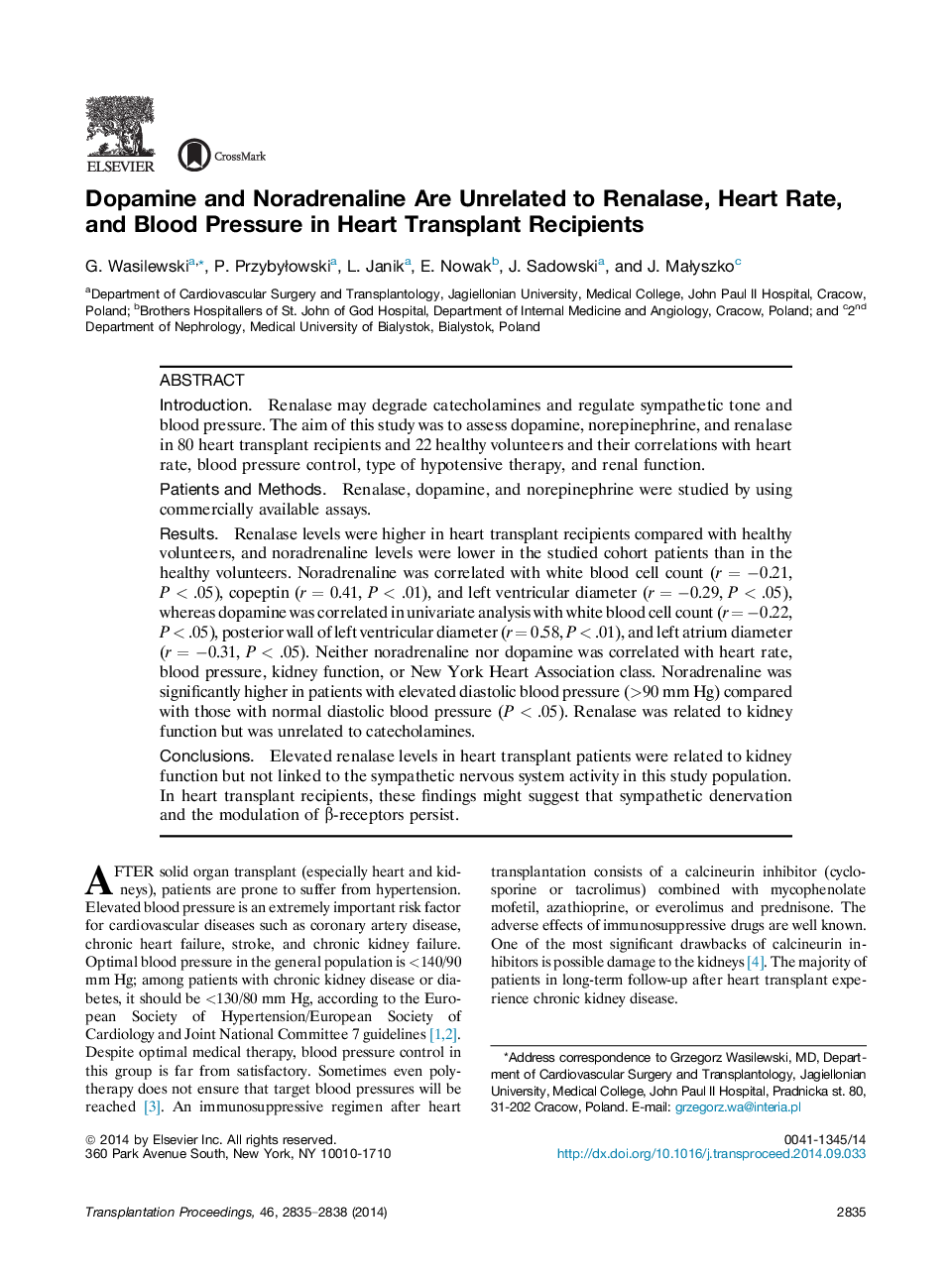| Article ID | Journal | Published Year | Pages | File Type |
|---|---|---|---|---|
| 4257998 | Transplantation Proceedings | 2014 | 4 Pages |
IntroductionRenalase may degrade catecholamines and regulate sympathetic tone and blood pressure. The aim of this study was to assess dopamine, norepinephrine, and renalase in 80 heart transplant recipients and 22 healthy volunteers and their correlations with heart rate, blood pressure control, type of hypotensive therapy, and renal function.Patients and MethodsRenalase, dopamine, and norepinephrine were studied by using commercially available assays.ResultsRenalase levels were higher in heart transplant recipients compared with healthy volunteers, and noradrenaline levels were lower in the studied cohort patients than in the healthy volunteers. Noradrenaline was correlated with white blood cell count (r = −0.21, P < .05), copeptin (r = 0.41, P < .01), and left ventricular diameter (r = −0.29, P < .05), whereas dopamine was correlated in univariate analysis with white blood cell count (r = −0.22, P < .05), posterior wall of left ventricular diameter (r = 0.58, P < .01), and left atrium diameter (r = −0.31, P < .05). Neither noradrenaline nor dopamine was correlated with heart rate, blood pressure, kidney function, or New York Heart Association class. Noradrenaline was significantly higher in patients with elevated diastolic blood pressure (>90 mm Hg) compared with those with normal diastolic blood pressure (P < .05). Renalase was related to kidney function but was unrelated to catecholamines.ConclusionsElevated renalase levels in heart transplant patients were related to kidney function but not linked to the sympathetic nervous system activity in this study population. In heart transplant recipients, these findings might suggest that sympathetic denervation and the modulation of β-receptors persist.
